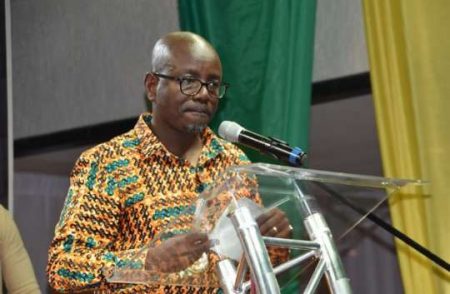The Chief Executive Officer, Ghana Tourism Authority, Mr Akwasi Agyeman, says more resources are needed to make the future of the tourism industry brighter.
He said, “the future of tourism in the country, we know looks bright, but we need more resources to beable to achieve that.
The tourism landscape has opened, and we have a broadened mandate with other responsibilities, so one would expect that we get more resources, but it doesn’t come that way, so we struggle a bit.”
READ ALSO: Video in circulation not what we created – Samsal agency on GTA-Ayat brouhaha
Mr Agyeman said as the main implementing Agency of the Tourism Ministry, the Authority wished to have branches in all regions and districts in line with the Tourism Act but lack of resources and pressure on government purse from other sectors was making the feat difficult.
He said, “this is one of our biggest challenges as an organization. GTA has done very well with a very young dynamic team. It
has transitioned positively from tourism board to an Authority with a more broadened scope and mandate but with it has come a
few challenges.”
The GTA CEO was, however, said the one per cent tourism development levy had helped in terms of marketing and product development.
“We are hopeful, however, because we have a strong board and leadership and a dynamic and focused working team who understand and know what is required of them, and with the support from the fund for our operational activities, it will ease some of the pressures on us.”
On the impact of COVID-19 on the sector, he noted that the industry was one of the hardest hits by the pandemic, saying “the
COVID-19 pandemic taught the industry a few things. At least nobody thought that for the first time we will have our airports shut down for six months, public gatherings will stop, hotels, schools and restaurants will be closed, but it happened, and we learnt a lot from it.”
Mr Agyemang said post COVID-19, the Authority had put in various interventions to help the sector to bounce back and build a very resilient industry.
He said one of the interventions was product development to refocus attention on domestic tourism, and shift the focus a bit from international tourism, hence the inception of the “Experience Ghana: Share Ghana” as a campaign.”
“To do that we realized that it cannot be just marketing, but some product improvement and so we started some products upgrade, at some of the tourist sites across the country and so product improvement became imperative.”
The CEO said the Authority also concentrated on building resilience through partnerships, so working with other organisations
and other event organizers like the GIPC, they launched the ‘Taste of Ghana’ and engaged with other groups in the diaspora to come back to Ghana to make sure that the partnership model would be solidified.
“We also looked at people development where the sector skills needed to be improved. Under the Ghana CARES Obatampa Project, tourism was chosen as one of the sectors and to date we have trained almost 3100 practitioners. Some in product development, customer service, digital marketing, and quality service assurance, among others.”
Mr Agyeman called on stakeholders to get on board so that together they would build a resilient industry and make tourism the number one contributor to Ghana’s GDP.
GNA





